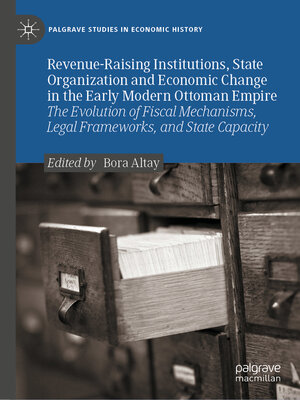Revenue-Raising Institutions, State Organization and Economic Change in the Early Modern Ottoman Empire
ebook ∣ The Evolution of Fiscal Mechanisms, Legal Frameworks, and State Capacity · Palgrave Studies in Economic History
By Bora Altay

Sign up to save your library
With an OverDrive account, you can save your favorite libraries for at-a-glance information about availability. Find out more about OverDrive accounts.
Find this title in Libby, the library reading app by OverDrive.



Search for a digital library with this title
Title found at these libraries:
| Library Name | Distance |
|---|---|
| Loading... |
This book offers an innovative look at the Ottoman iltizam (tax-farming) system through the lens of historical inquiry and modern theory.
Drawing from original archival research as well as theoretical frameworks such as principal-agent theory and game theory, this book explores how the Ottoman state managed revenue collection, delegated authority, and grappled with institutional constraints. The chapters guide readers through the evolution of tax farming from its historical roots and theoretical foundations to detailed case studies. Contributors examine fiscal capacity, state-building, credible commitment, and the unintended consequences of decentralization. The final chapters explore 19th-century constitutional reforms that changed the institutional designs of earlier periods and synthesize key findings. Essential for scholars of Ottoman history, economic history, political economy, and institutional change, this volume redefines how we understand state organization, economic transformation, and governance in non-Western contexts.







